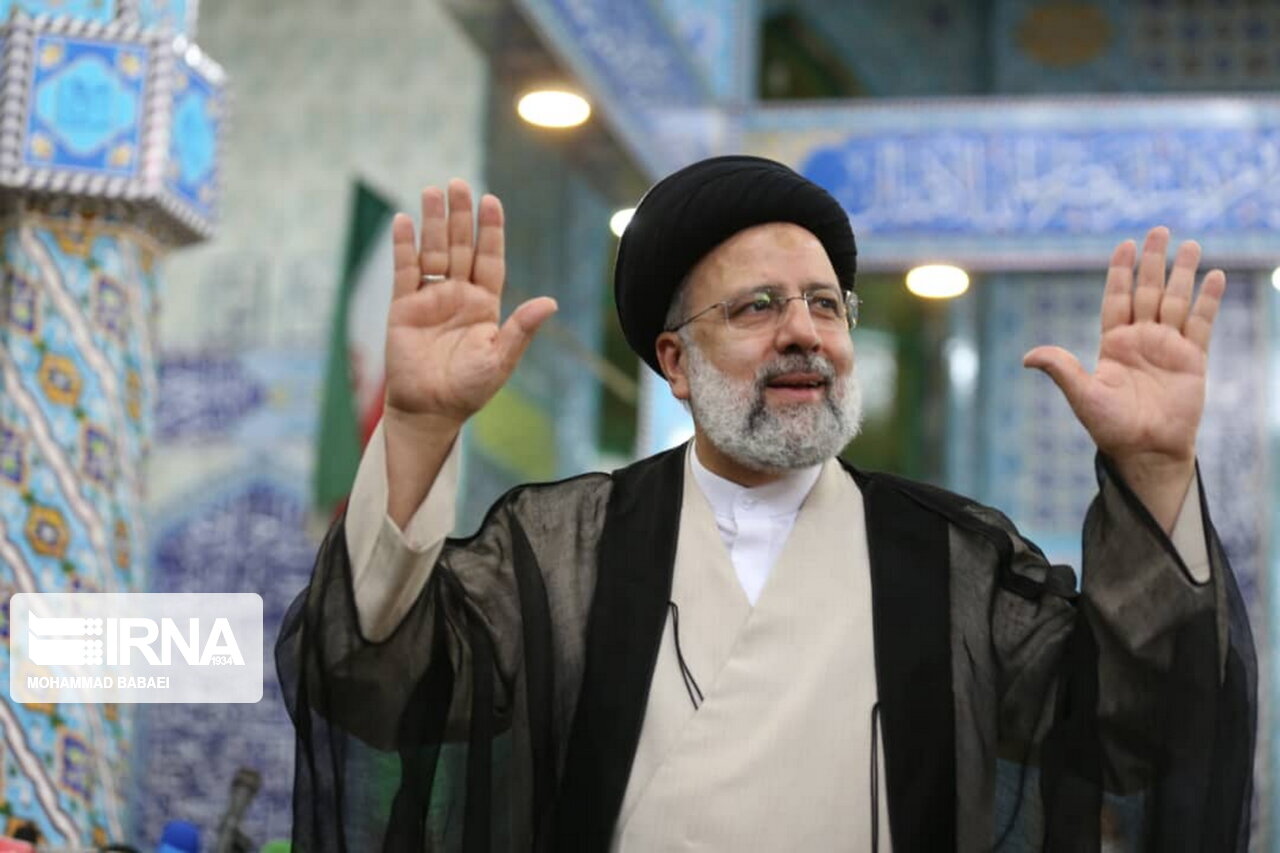Op-Ed by Naveed Sadeghi
While ordinary Iranians deal with widespread food shortages and a struggling, sanctions-ridden economy, Ebrahim Raisi, the newly elected president of Iran, wants to give hundreds of millions of dollars to “proxy terror groups” across the region.
Since his inauguration, Raisi has already met with Ismail Haniyeh, the Political Bureau Chief of Hamas, and Naim Qassem, the Deputy Secretary-General of Hezbollah, to coordinate Iranian opposition to Israel and laud the performance of Tehran’s proxy groups.
In his meeting with Haniyeh, the president-elect pledged further support for Hamas operations in Palestine.
“[Palestine] has been and will be the first issue of the Muslim world…We have never had and will never have any doubt about this policy,” said Raisi. In turn, Haniyeh praised the Iranian regime for its material and political support for Hamas, claiming that, as a result, “the Zionist regime is weaker, more confused and more desperate than ever.”
Naim Qassem reportedly expressed similar sentiments in his conversation with the president, thanking Raisi for Iran’s continued support for the “Islamic resistance in Lebanon.”
In the same meeting, Raisi, in a staggering display of irony, invoked Israel as a direct threat to the stability of the region, and encouraged his guests to continue their campaign of terrorism and destruction, telling Qassem: “Lebanon’s Hezbollah has succeeded in displaying effective deterrence against the Zionist enemy.”

The substance of these meetings is not surprising considering Raisi has spent decades proselytizing for both Iranian expansionism and the annihilation of Israel. However, Raisi’s reaffirmation of financial support for Hamas and Hezbollah raises an important question: if Iran is able to finance designated terrorist organizations, why can’t it also help its citizens?
A Precarious Economy
Since the beginning of the Islamic Revolution, the Iranian government has prioritized its aspirations for regional hegemony over the needs of its people. With a government riddled with corruption and an economy crippled by oil and banking sanctions, ordinary Iranians have been struggling to survive.
According to Jahan-e Sanat, an economic newspaper that was recently shuttered after exposing misinformation in the regime’s COVID-19 statistics, there are now more than 60 million people living below the poverty line in Iran. One of the main drivers of the current crisis is rampant inflation in food and housing.
Cut out of international trade and facing declining oil revenues, the Iranian government has resorted to issuing and printing money to fund its military build-up and balance public deficits. This massive infusion of cash has, in turn, devastated Iran’s already frail economy, devaluing the rial and inducing extreme inflationary pressures.
Earlier this year, point-to-point inflation in essential commodities hit 63 percent. As a result, Iranian consumers have been left scrambling to purchase basic foodstuffs, with the price of butter, chicken, and oil rising by more than 121 percent.
Similarly, meat, fruit, and rice have all seen a price increase of at least 24 percent. At the same time, hundreds of small businesses have been forced to close due to rising costs, and many Iranians have had to forgo their monthly incomes to afford basic household goods.

Unsurprisingly, the current regime has avoided taking responsibility for its own mismanagement of the economy. Instead, they blame the ‘enemies of the Islamic Republic’ (read: the United States) for sabotaging Iran’s economy.
This narrative, however, ignores the fact that pre-revolution Iran’s economy was in the process of diversifying away from its dependence on the oil economy. This is a stark contrast to the situation today where oil exports make up nearly a quarter of the country’s gross domestic product — by comparison, the global average is only 3.05 percent.
Raisi To Hinder Real Change?
While Iran’s economy has undeniably been sunken by sanctions, the government has continually failed to diversify its economy and find alternative sources of revenue. Instead, the regime has resisted structural economic reforms and used the country’s dwindling oil funds to finance an aggressive, expansionist foreign policy agenda.
Nevertheless, it should come as no surprise that Ebrahim Raisi has no intention of alleviating the hardships faced by Iran’s citizens. In his prior position as head of the judiciary, Raisi oversaw the imprisonment and torture of thousands of political dissidents in Iran.
This includes a litany of human rights abuses, with notable examples including the 1988 massacre of thousands of political prisoners by the regime and the operation of the notorious Evin prison.

In addition to the routine mistreatment of Iranian women and children, Raisi has also justified the use of the death penalty and the suppression of dissent through brutal crackdowns on activists and journalists.
Raisi’s complete lack of empathy for his own citizens and open support for terrorist groups is in line with the Iranian government’s longstanding objective to export violence and destabilize the region.
For Iran to have any hope of undergoing real economic and social change, Ebrahim Raisi’s regime must be held accountable for its abysmal record of corruption, neglect, and oppression.
- (The author is a London-based freelance journalist specializing in Iranian affairs and human rights violations)
- Follow EurAsian Times on Google News




